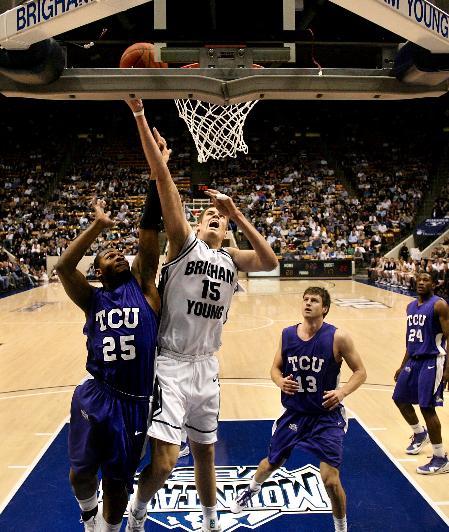Former senator and 1972 Democratic presidential nominee George McGovern outlined his efforts to end world hunger, summarized his latest biography on Abraham Lincoln and mentioned his views on contemporary politics Tuesday at the 2010 Jim Wright Symposium.
McGovern spoke to about 300 students, professors and university officials in the Brown-Lupton University Union Ballroom.
The 87-year-old McGovern said before the speech that he would continue the fight against world hunger as long as he is alive.
“For whatever years I have left, (fighting world hunger) will be my main objective,” he said. “I’d like to live long enough to see every school-aged child in the world getting a good lunch as long as they’re in school.”
One of the greatest objectives of his world hunger efforts is improving the nutrition of school lunches, he said.
“I’m going to speak to some of the people in charge of (those issues),” McGovern said. “I’ve already got a letter written on those two points to see if we can’t get a higher level of nutritional content.”
He said he was fortunate to be selected to write the biography on Abraham Lincoln because Lincoln was “the best writer we had in the White House.”
“(Lincoln) was a man that hungrily pursued every thing that was worthwhile,” McGovern said.
Lincoln only had a grade school education, and he never learned to read while in school, McGovern said. Lincoln’s father also oppressed him by forbidding him from reading.
Honest Abe persisted, though, McGovern said.
Lincoln’s greatest obstacle was clinical depression, McGovern said, which was referred to as “melancholy” at that time. The president even considered committing suicide, McGovern said.
“When (Lincoln) was 42 years old, he told a friend that he thought he was the most miserable man on this planet,” McGovern said.
In a revealing moment, McGovern touched on his daughter’s experience with depression. She eventually overcame depression by suppressing her thoughts with alcohol, he said. McGovern’s daughter, Terry, died in an alcohol-related accident in December 1994.
All the proceeds from books sold at Tuesday’s event will go to support the Terry McGovern Alcohol Treatment Center in Madison, Wisc., the city where Terry died.
McGovern also addressed the wars in Iraq and Afghanistan, which he said he opposes based on his experience as a World War II veteran.
“(WWII) was a war I believed in then, and I still do,” he said. “I can’t say the same about some of the recent wars.”
During a question-and-answer session, he was asked why he was a proponent of the Vietnam War but disapproved of the current wars.
“I don’t think terrorism is primarily a military problem,” McGovern said. “You don’t end (terrorism) by sending in army, navy or air force. When you do that, you turn the country against you.”
Junior advertising-public relations major Frankie Requena said he would have liked to be alive when McGovern was running for president.
“I really wish I would have known more about him during his time in office,” he said. “Hopefully, I can use some of his advice if I do choose a political path.”
Requena said American views on war should be more like McGovern’s.
Chancellor Victor Boschini said the speech was interesting because McGovern has been involved with a series of important events.
“He’s an icon,” Boschini said. “Like him or not, he’s witnessed history, and he’s been a part of a lot of history.”
Boschini said McGovern is more than an object of political history.
“His real care is humankind,” he said. “His whole fight on hunger is probably the most important mission he ever had. It makes you feel like, ‘Wow, I haven’t done enough.'”

